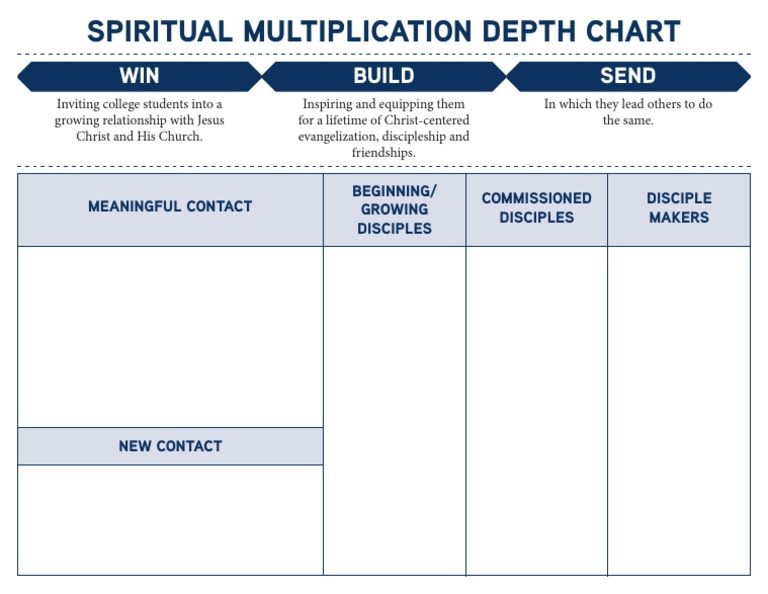The Bahá’í teachings advocates for unity and inclusion among all human beings, emphasizing a profound societal shift to transcend the limitations imposed by divisive religious identities. Among the core principles of this faith, the concept of “Spiritual Multiplication” emerges as a pivotal tenet, underscoring the necessity to cultivate spiritual and moral capacities within individuals and communities. This notion may serve as a counterpoint to the perennial phenomenon of religious division that has marred human history.
At the heart of Bahá’í teachings lies the notion that humanity constitutes one family. This holistic perspective recognizes that despite varying cultural and religious frameworks, all individuals are connected through a shared destiny. The challenge of religious division manifests not only in doctrinal disagreements but also in societal fragmentation. Recognizing how Spiritual Multiplication can fortify communal harmony requires an analysis of its implications for personal development and collective advancement.
Spiritual Multiplication can be delineated into three essential dimensions: personal transformation, communal synergy, and global interconnectedness. Each dimension contributes to a framework that aspires to ameliorate the adverse effects of religious schism.
Firstly, personal transformation is an indispensable element within the notion of Spiritual Multiplication. This occurs when individuals actively engage in self-reflection and self-improvement, cultivating virtues such as love, compassion, and tolerance. The Bahá’í teachings articulate that the spiritual journey is inherently individual, yet its effects resonate within the collective. When one person embraces the transformative power of spirituality, it often engenders a ripple effect, inspiring others to embark on their own journeys of awakening and personal growth. This multiplicative effect fosters environments of empathy and understanding, which are essential for reducing religious tensions.
Secondly, communal synergy emerges when transformed individuals coalesce to foster a more comprehensive spiritual atmosphere within their communities. The Bahá’í community places significant emphasis on collective action and the complementary relationship between the individual and the collective. By engaging in collaborative activities—through service projects, educational initiatives, and interfaith dialogues—members of a community can actively contribute to the spiritual and moral enhancement of one another. Such collaborations have the potential to bridge gaps between disparate religious groups, effectively demonstrating that through unified efforts, individuals can surpass the confines of dogmatic differences and nurture shared values.
The process of spiritual realization within communities also cultivates a shared narrative grounded in common purpose. For instance, when various faith-based communities recognize their interconnectedness, they can forge alliances that empower collective action in addressing broader social issues—like poverty, discrimination, and environmental degradation. This shift from isolated religious identities to interdependent collaboration marks a significant paradigm shift, reframing the discourse surrounding religion from one of division to one of unity and cooperation.
The milieu of global interconnectedness represents the third and most expansive dimension of Spiritual Multiplication. The Bahá’í teachings encapsulate the idea that humanity’s collective future hinges on the recognition of divine oneness. This principle extends beyond local and national contexts, emphasizing the importance of international cooperation. When individuals and communities embody this global perspective, they create networks of understanding that transcend geographical boundaries, further mitigating conflicts fueled by religious divisions.
To facilitate this global understanding, Bahá’í teachings encourage ongoing dialogue among faith traditions. Such interfaith exchanges serve to illuminate shared values, fostering an environment where diverse perspectives can coexist harmoniously. Through this dialogue, participants can dismantle preconceived notions and prejudices, leading to enriched mutual understanding and respect. When individuals grasp the essence of Spiritual Multiplication, they recognize that every engagement with another religious perspective is a step toward greater harmony and shared purpose.
Additionally, the manifestation of Spiritual Multiplication can be observed through educational efforts aimed at fostering understanding among different religious communities. The incorporation of Bahá’í principles in educational curricula can serve as a means to educate young minds on the significance of unity, pluralism, and collective responsibility. By nurturing values of empathy, respect, and critical thinking, the youth become empowered to assume leadership roles actively and responsibly, promoting dialogue and cooperation among diverse groups.
Nevertheless, the journey toward overcoming religious divisions is fraught with challenges. Long-standing prejudices, socio-political tensions, and historical grievances can inhibit the potential for Spiritual Multiplication to thrive. Thus, the role of individuals within this transformative process cannot be overstated. Each person is urged to confront their prejudices, question their biases, and pursue individual efforts towards understanding. Only through dedicated, conscious engagement can foundational shifts occur that ultimately manifest in overarching societal change.
In conclusion, the Bahá’í teachings of Spiritual Multiplication offer a paradigm that counters the pervasive issue of religious division. By nurturing personal transformation, fostering communal synergy, and promoting global interconnectedness, individuals and communities can actively participate in the creation of a unified and harmonious society. Embracing these principles resonates beyond individual or communal benefits; it represents a clarion call for collective spiritual awakening towards shared destiny and cooperation. It is through this collective endeavor that humanity may surmount the challenges wrought by division and ultimately fulfill its potential as one interconnected family.
